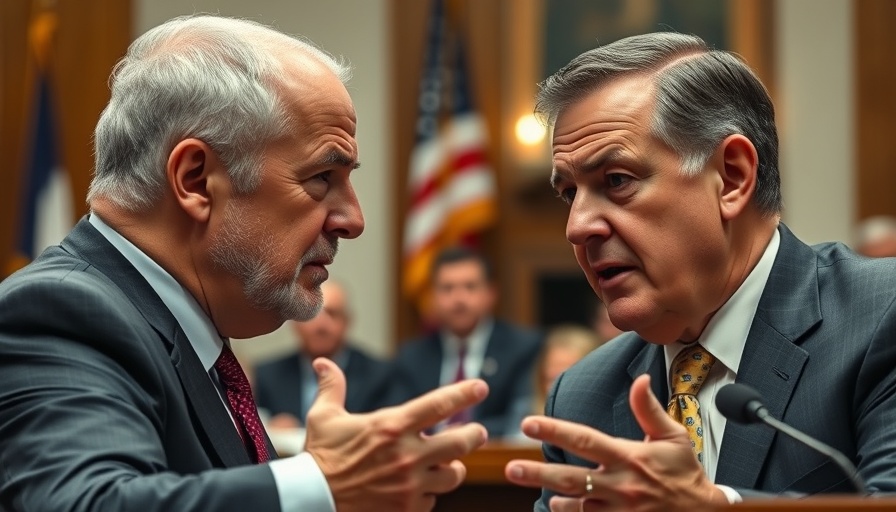
Hegseth Under Fire: A Tipping Point for Political Loyalty in Defense?
During a heated session of the House Armed Services Committee, Secretary of Defense Pete Hegseth faced significant scrutiny from Representative Salud Carbajal. The tension escalated when Carbajal pressed Hegseth with a direct question regarding whether political loyalty to President Trump was a requirement for military service. Hegseth's responses sparked outrage, leading to tough words from Carbajal, who asserted that Hegseth was unfit to lead.
The Importance of Accountability in Leadership
Carbajal's confrontational questioning highlighted a critical issue: the necessity for accountability within military leadership. As lawmakers discussed the integrity of the Department of Defense, concerns were raised about Hegseth's previous actions, including sharing classified information that could endanger service members. The questioning reflects a broader demand from political leaders for transparency and responsibility, especially in roles as significant as the Secretary of Defense.
The Echoes of Bipartisan Criticism in Defense Leadership
Carbajal's comments did not occur in isolation; other bipartisan voices within Congress have conveyed their discontent with Hegseth's performance. Notably, the call for his resignation comes in the wake of concerns regarding his ability to effectively lead the military and uphold its values. These criticisms underline the urgent need for political leaders to unite in ensuring that the sanctity of military service is preserved above partisan lines.
The Broader Narrative of Political Allegiance and Military Integrity
This confrontation is not simply about one individual's fitness for office; it serves as a mirror reflecting larger societal issues regarding political allegiance and its place in public service. The question of whether one’s loyalty should lean towards political leaders rather than the Constitution opens up debates about the integrity of U.S. military and civilian roles. Historical examples from past military leaders have shown that the ability to remain apolitical is critical to maintaining trust and effectiveness within the ranks.
Recognizing the Stakes: Leadership and the Whole Nation
As the conversation around Hegseth's role unfolds, it serves as a reminder of the stakes involved in defense leadership. The role of the Secretary of Defense is crucial not just for military efficacy but for national integrity. Amidst a polarized political landscape, ensuring the department remains a nonpartisan entity is paramount. The expectations of leaders to prioritize national over political interests echo loudly through every facet of governance, especially in defense.
As we watch the next steps in this unfolding drama, it is vital for both lawmakers and citizens to engage deeply with the implications these discussions hold for creating a robust, accountable, and inclusive military system. Call your representatives, express your views, and participate in the democratic process that shapes our nation's leadership.
 Add Row
Add Row 

 Add
Add 


Write A Comment